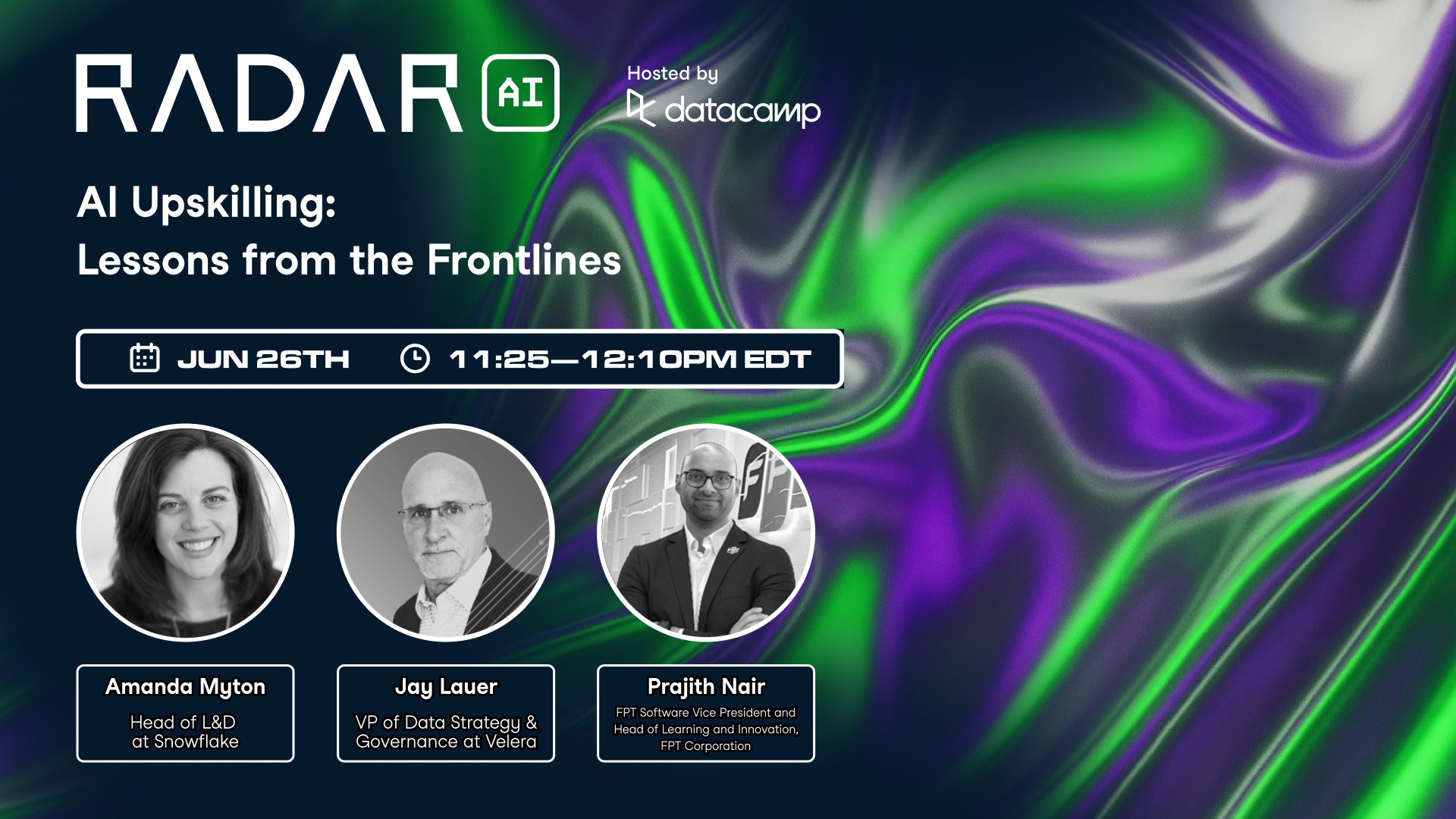Speakers

Amanda Myton
Head of L&D at Snowflake

Jay Lauer
VP of Data Strategy & Governance at Velera

Training 2 or more people?
Get your team access to the full DataCamp library, with centralized reporting, assignments, projects and moreAI Upskilling: Lessons from the Frontlines
July 2025
Related
white paper
Data Leader's Guide to Upskilling
Building around eight key personas can drive your data-driven transformation.webinar
Building Tomorrow's Workforce, Today: Scaling Internal AI Academies
Explore the critical steps to creating a successful AI upskilling program within your organization and find out best practices for building internal AI academies, from curriculum development to engagement strategies and measuring impact.webinar
Scaling Data & AI Literacy with a Persona-Driven Framework
In this session, three experts walk you through the steps of creating a successful data training program.webinar
Scaling Data & AI Literacy with a Persona-Driven Framework
In this session, three experts walk you through the steps of creating a successful data training program.webinar
Revolutionizing Learning: Exploring the Future of Upskilling with AI
Join us as the panel of AI and education experts discuss how to work with generative AI to upskill employees and improve corporate training programs.webinar